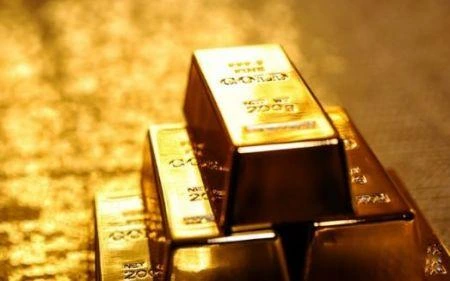
Ghana has launched a national task force to combat gold smuggling and recover billions of dollars lost to the illicit trade.
President John Mahama inaugurated the multi-agency team on Tuesday in Accra. It includes personnel from the police, military, and other security agencies. They are authorised to arrest and detain suspects involved in illegal gold mining and export.
This signals our readiness to act decisively. Let this serve as a warning to all those involved in gold smuggling—the law will be enforced without fear or favour”, Mahama said.
The move follows years of public complaint over illegal gold mining, known locally as galamsey. It has caused environmental destruction, polluted rivers, and triggered protests across the country. The issue became a major topic during the last election, with Mahama promising firm action.
To encourage public cooperation, the government announced a 10 per cent reward for anyone who provides tips that lead to seizures of smuggled gold. Task force members will reportedly wear body cameras for accountability and real-time monitoring.
The task force will work closely with the Ghana Gold Board (GoldBod), created in January as the sole legal body for regulating gold trade and exports, in metric tonnes. Mahama said the reforms are helping to stabilise the cedi, which has long struggled against the dollar.
Earlier this month, GoldBod signed agreements with nine large-scale mining companies. Under the deal, each company will sell 20 per cent of its gold output to the Bank of Ghana under a domestic gold purchase programme. They are expected to supply a combined 200 kilogrammes of gold per month. Payments will be made in cedis at a one per cent discount to the London Bullion Market spot price.
Ghana produced a record 4.8 million ounces of gold in 2024. The Ghana Chamber of Mines projects a further increase to 5.1 million ounces in 2025, driven by artisanal miners and new large-scale operations.
Ghana remains Africa’s leading gold producer, surpassing South Africa and Mali. Global gold prices have also surged by 25 per cent this year, reaching a peak of $3,500 per ounce in April. This has helped boost Ghana’s export earnings and strengthened the cedi.
The government plans further reforms. These include a national gold traceability system and a shift to exporting only refined gold by 2026. Ghana also plans to establish an ISO-certified assay laboratory and a gold manufacturing hub to promote value addition before export.
Read More:
- Tinubu Yet to Appoint Ambassadors as Nigeria Faces Diplomatic Setbacks Amid U.S. and UAE Visa Restrictions
- Malian Court Jails Former Minister Cissoko Over Presidential Jet Scandal; Others Sentenced in Absentia
About The Author
Related Articles
AES Condemns Niamey Airport Attack, Warns of Coordinated Destabilisation
The Alliance of Sahel States has strongly condemned the armed attack on...
ByWest Africa WeeklyFebruary 2, 2026Mali Cedes Strategic Land to Guinea to Deepen Trade Cooperation
Mali has approved the transfer of a strategic parcel of land to...
ByWest Africa WeeklyFebruary 2, 2026Senegal to Appeal CAF Sanctions After AFCON Final Controversy
Senegal has announced plans to formally appeal the sanctions imposed by the...
ByWest Africa WeeklyFebruary 2, 2026Burkina Faso Takes Legal Step Toward Nuclear Energy Development
Burkina Faso has voted to join the Vienna Convention on Civil Liability...
ByWest Africa WeeklyFebruary 2, 2026













Leave a comment